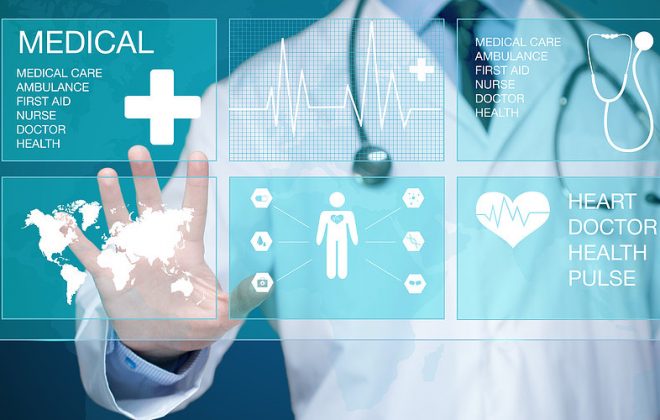How Mobile Technology Is Rapidly Transforming Healthcare Industry
According to Wolters Kluwer Health reports, 72% of the physicians use smartphones to access drug related information. 63% of physicians rely on their tablets to access medical research and 44% of physicians use smartphones to communicate with nurses and other employees. The 2015 survey of HIMSS mobile technology findings indicated that 90% of the respondents were using mobile devices within their company to engage with their patients.
The healthcare industry is undergoing a drastic transformation with the use of mobile apps in some of the key areas involving patient care. In this blog, we examine how the benefits of mobile technology are passed on to healthcare practitioners, patients and the industry in general.
Why mobile matters in the healthcare industry?
As more and more number of healthcare professionals rely on mobile apps today, mobile technology has become a hotbed for innovations taking place in this industry. Mobile health apps are seeing a significant rise as they are widely used by medical practitioners to diagnose, monitor, consult and cure many diseases. These apps have provided flexibility in accessing medical information quickly along with offering quality resources for doctors to enable them to take vital health care decisions related to their patients.
Besides, mobile devices can offer healthcare IT solutions which are user-friendly and accessible to healthcare providers. The wide adoption of tools such as EHR’s, RCM software, clinical decision support systems can be far more effective when integrated with mobile solutions. The information available is more condensed, shareable across mobile devices and prove to be a cost-effective solution for healthcare providers.
Key applications of mobile technology in healthcare
Data collection and tracking
Patients can have better control over their health monitoring through some of the wearables that are available in the market today. There are also many apps which can help in aggregating data collected by these wearables in the form of dashboards that provide precise snapshots of their health status for patients. In turn, these may be shared with their healthcare providers for better assessments. Mobile apps can be integrated with in-home monitoring devices that may be used to track serious medical conditions such as congenital heart disease among infants or manage health issues of older individuals.
Remote management of post-op care
Mobile apps can improve the consistency and quality of treatments and increase the possibilities of getting positive outcomes, especially during post-op care. Most of these mobile apps are designed to assist patients and make sure that they follow with the prescribed recovery plan. Physicians and nurses can access data regarding some of the vital parameters such as heart rate to fluctuations in BP and accordingly intervene at the earliest possible to provide the best medical care to their patients.
Offer support to mental health patients
Mobile app developers are coming up with novel ideas and approaches to provide better assistance in mental health care management. Patients suffering from certain syndromes such as OCD (Obsessive Compulsive Disorder) may be able to download mobile apps and wearable apps, which can be extremely useful for self-monitoring their conditions. If therapists are not present at that time, they can still acquire the data collected by these apps to customize and improve their patient’s plan for faster recovery.
Boosting the communication between patients and healthcare givers
Mobile apps can add a human dimension to health care as they can turn into a 24X7 service, which is interactive and offers easy access to patients with quality healthcare options. There is better connectivity between the patients and the healthcare providers in this way which facilitates greater communication resulting in higher patient satisfaction.
Mobile technology is changing the face of healthcare industry
Increase in mobile health apps
Mobile health apps are increasing in usage with over 100,000 health related apps found across worldwide app stores. There are mainly two categories of health care apps that are widely used-the first one is for wellness and the other is medical related. Around 85% of the apps are used for wellness, whereas rest are used by physicians.
Personalized mobile experience
Mobile allows patients, healthcare providers, and consumers to have a more personalized experience. With the use of technology, it is possible to customize health content as per the patients’ mobile history or based on their behavior. Besides, mobile devices can help in initiating one-to-one interactions to provide highly relevant content at the right time based on user preferences.
Growth of wearable technology
Wearable technology such as wrist bands, glasses or jewelry is a product of mobile technology but more related to devices. The availability of sensors and wearables can be valuable in monitoring health and even diagnose diseases at the earliest possible to expedite the treatment process. Data streaming, bio embedded sensors and augmented sensory perception are other emerging areas that will experience demand and growth in the future.
Access to electronic health records
Patients and healthcare providers with access to mobile can view electronic records easily than before. Drug and interaction of medicines may be accessed through the mobile platforms for better patient safety. Healthcare providers can send electronic copies of their patients and any other health related information to their smartphones. In the same way, patients too can access their health records by downloading them and transfer health related information using mobile messaging services.
Use of big data and analytics
Big data has an enormous impact even in the healthcare segment resulting in better quality of data which can result in better patient care and outcomes. There is a huge potential to gather physiological related data, contextual data along with usage data which may be used for making recommendations, aiding purchases and behavior related modifications.
Conclusion
Mobile technologies will lead to a transformation which will overhaul the complete healthcare system. This will enable healthcare providers to provide more personalized care to patients along with cost-effective and high-quality services. As the mobile technology continues to expand its horizons in the medical field, a new era in healthcare will emerge and ensure quick, high quality and effective healthcare within everyone’s reach.



